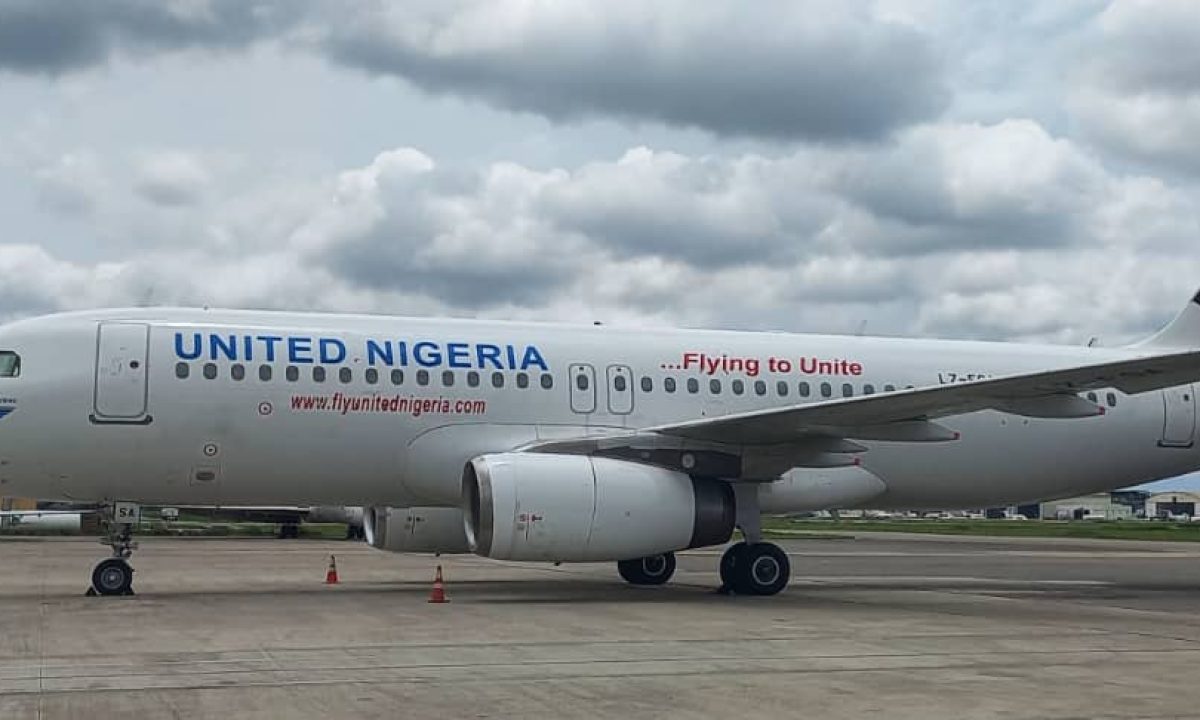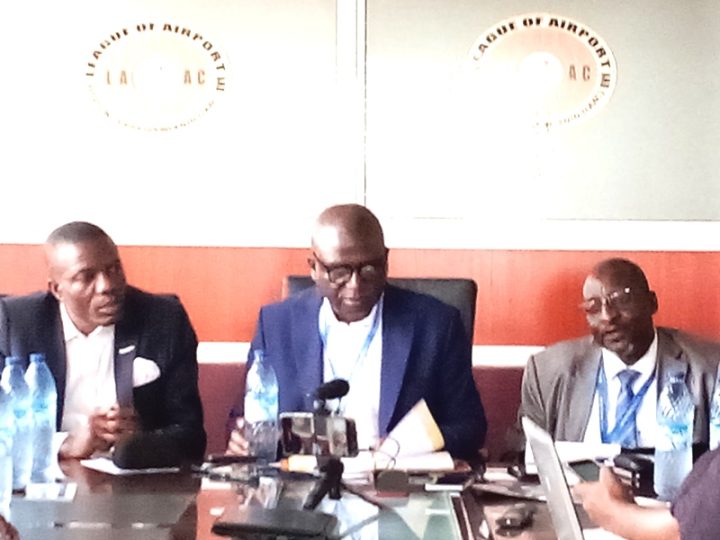Third Anniversary: United Nigeria Airlines reflects on milestones, challenges

Amidst operational hurdles and economic fluctuations, United Nigeria Airlines commemorated its third anniversary, reflecting on the trials and triumphs it encountered since its inception.
Speaking during a media session in Lagos with aviation correspondents to mark its third anniversary on Monday – February 19, 2024, the Chief Operating Officer of UNA, Osita Okonkwo, candidly addressed the obstacles faced by the airline, emphasising the drastic surge in fuel prices and foreign exchange rates since its establishment in February 2021.
Talking about challenges, Okonkwo noted that from Jet-A1 fuel skyrocketing from N300 to N1,300 per litre, to forex rates escalating from N300 to N1,700, the financial strain has been palpable.
He highlighted the impact on procurement, particularly in acquiring critical spare parts, which necessitates significant time and expenditure.
“When we started February 2021, Jet-A1 was N300 per litre but it is now N1,300, forex was about N300 but this morning, it is about N1,700, these are ingredients for disaster, it’s just by miracle that we are still surviving. When you look at the issue of forex availability and the cost, for us to get critical spare parts, we have to spend a lot of time and money to be able to access them,” Okonkwo said.

He further disclosed that infrastructure inadequacies across various airports have posed logistical challenges.
According to him, despite some advantages at the Murtala Muhammed Airport Terminal Two (MMA2), space constraints have led to chaotic scenes during peak hours, resulting in flight delays.
He added that critical airport facilities such as Instrument Landing Systems (ILS) and airfield lighting were deficient in certain airports, leading to safety concerns and flight diversions.
“The issue of infrastructure inadequacy at all airports, no one is excluded. MMA2 has some advantages but the space is so restrictive that it is so chaotic in the morning when there are so many flights leaving. It requires further expansion for better efficiency. We have flights being delayed for 30 minutes to 1 hour and once you do that, it cascades into other flights and the delays continue.
“Of course, we also talk about the facilities at other airports, ILS, airfield lighting are basically non-existent in some airports. We have sunset issues, where many of our flights have been caught up in. If the airport closes at 6pm, and you want to land at 7pm, you will pay N500,000 for the extra hour. If you are landing 2 hours late, that is N1 million,” Okonkwo lamented.
He further underscored the importance of efficient service providers, citing instances where non-functioning equipment, like fuel bowsers, led to costly delays and inconveniences for passengers.
He said, “The other thing is that let’s focus on the service providers who must be efficient for flights to land and depart on time. We have had situations where we land and the bowser is not serviceable, you wait for 15 minutes, 1 hour, it is not serviceable. You will now decide to do a test up to another airport, which is a huge cost in terms of money and time.
“In some airports, there is only one provider, there are occasions where you have full load, for our type of aircraft of 50 passengers, if you drop five passengers you have a list for five days. When you get a call that the bowser is not working, the passengers don’t understand, how do you explain this?”
Speaking on the issue of insurance capacity for large aircraft within Nigeria, Okonkwo highlighted the lack of indigenous capability, which hampers business operations and partnerships with lessors.
Reports indicate that Nigerian airline operators pay high insurance premiums ranging from 10 to 12 percent on aircraft, particularly those under wet lease arrangements, making it the highest in West Africa.
This elevated rate stems from Nigeria’s classification as a “high risk” environment due to its inadequate safety records in safety assessment, safety avoidance practices, accident predictions, and substandard aviation facilities and safety equipment, which are supposed to meet global standards.
Okonkwo said there appears to be no way out of the situation, as the insurance policy is an international requirement that must be honoured, even though it has a negative impact on indigenous airlines.
“There is no capacity internally to do big aircraft insurance in Nigeria. So many lessors are not operating in Nigeria because of insurance. It is killing business because even though you want to do indigenisation, you cannot do that with another person’s assets.”
“Even if you buy an aircraft today, it is a requirement that you have to insure it even if you pay with your money. The insurance must cover the aircraft manufacturer – Boeing, Embraer, Airbus, etc. – even though they have sold it to you, they must be insured in that transaction. So you can’t escape the international requirements of the business and limiting it locally will not help lessors,” Okonkwo said.
Despite these challenges, Okonkwo disclosed that UNA has steadily expanded its workforce, employing approximately 500 Nigerians directly and providing over 1,000 indirect job opportunities.
Okonkwo expressed gratitude for the collaborative efforts within the aviation industry, particularly through initiatives like the ‘Spring Alliance’ formed with Air Peace, Azman Air, Arik Air, Aero Contractors, and Max Air.
He revealed plans to formalise interline agreements with other carriers, which will further enhance the airline’s connectivity and operational efficiency.
Reflecting on the airline’s achievements, Okonkwo highlighted milestones such as obtaining the International Air Transport Association (IATA) Operational Safety Audit program certification and becoming an IATA member, solidifying UNA’s position as a key player in Nigeria’s domestic aviation sector.







